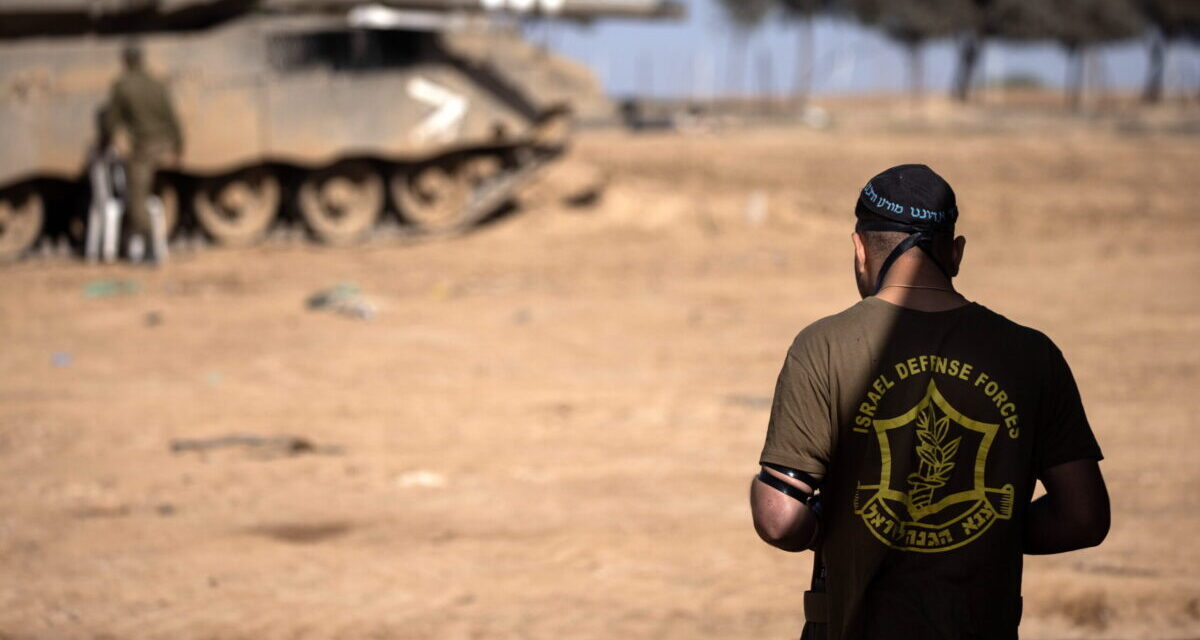This is what the world was afraid of.
Israel struck: the Jewish state carried out missile attacks in Iran, Tehran was hit. According to reports, the Israeli attack has so far avoided Iran's nuclear facilities and energy infrastructure, but Iran is still planning an even bigger response. The United States was informed of the attack but did not participate.
In response to months of continuous attacks by the Iranian regime against the State of Israel, the Israel Defense Forces are currently conducting strikes against Iranian military targets
- announced the Israeli army on Saturday morning, at 1:41 a.m. CET on X. The statement emphasized:
"Like any other sovereign country in the world, the State of Israel has the right and duty to respond."
According to information from Bild, the defensive and offensive capabilities are "fully mobilized".
In response to months of continuous attacks from the regime in Iran against the State of Israel—right now the Israel Defense Forces is conducting precise strikes on military targets in Iran.
The regime in Iran and its proxies in the region have been relentlessly attacking… pic.twitter.com/OcHUy7nQvN
— Israel Defense Forces (@IDF) October 25, 2024
Military spokesman Daniel Hagari stated in a video of the airstrikes:
"We will do everything necessary to protect the State of Israel and the people of Israel."
According to Israeli military sources, energy infrastructure was avoided during the attacks for the time being. NBC, citing an Israeli official, wrote that they did not target nuclear facilities or oil fields. The Israeli military reported at 5:15 a.m.: “Our planes have returned home safely. The retaliatory strike is complete, mission accomplished." They also reported that "limited damage" and no casualties have been reported so far.
Iranian media reported explosions near Tehran a few minutes after the announcement of the Israeli attack. According to state television, several air defense systems were activated. According to reports, military targets were also hit in Karaj and Meshed, but the Israeli army did not initially respond to these reports. A Tehran resident told CNN that he "woke up to the sound of distant explosions" early Saturday. Several videos shared on X show smoke and flames, but the exact location and time of the events could not yet be confirmed.
Iranian authorities have previously warned Israel of a possible attack and threatened tougher retaliation. An anonymous source in the Iranian government told the Tasnim news agency:
there is no doubt that Israel will receive an appropriate response to any action”.
The tension is based on the fact that on October 1, Iran fired about 200 rockets in the direction of Israel, most of which were destroyed by Israeli air defenses. According to Iran, this move was a response to the assassination of Hamas leader Hassan Nasrallah.
At the time of the attacks, Prime Minister Benjamin Netanyahu was at the Kirja military base in Tel Aviv, where he held discussions with Defense Minister Joáv Gallant, among others.
Prime Minister Netanyahu at IDF HQ monitoring the attack on Iran pic.twitter.com/L7Br4jXrdy
— Mossad Commentary (@MOSSADil) October 25, 2024
The United States does not participate in the Israeli military's attacks on Iran, CNN confirmed, quoting Sean Savett, spokesman for the White House National Security Council, as saying:
"We understand that Israel is carrying out targeted strikes against Iranian military targets in response to the October 1st Iranian missile attack on Israel in exercise of its right to self-defense. For more information, contact the Israeli government."
According to CNN, Israel informed the White House in advance of the plan to attack, and President Joe Biden is at his home in Wilmington and has no plans to return to Washington.
***
Israel and Iran maintained good relations until 1979. A significant Jewish minority lived in the Persian state, many of whom did not leave Iran even after the establishment of the Jewish state. However, the revolution of 1979 changed everything. In his essay on the subject, university professor David Menashri describes that one of the revolution's most enduring doctrines is hatred of Israel. This is the cause that unites different political groups. "In the eyes of the Islamist regime, Israel remains an enemy of Iran and Islam and a threat to humanity," writes the analyst on the Wilson Center's website.
Iran denies Israel's right to exist, regardless of the specific borders.
Menashri adds: they mix a deep sense of religious mission with anti-Israelism and support for the Palestinian cause. The foundations of this were laid by Ayatollah Ruholláh Khomeini, the father of the revolution.
Khomeini wrote the following about the Jews in his book "Islamic Governance":
"The Islamic historical movement had to fight the Jews from the beginning, because they were the ones who first created anti-Islamic propaganda and carried out various twists, and as we can see, this activity continues to this day."
a Wall Street Journal article , the ayatollah described Jews as "distorting the Koran, hoarding money and agents of the West." This kind of anti-Semitism also characterizes the Ayatollah's followers. Former President Akbar Hashemi Rafsanjani, one of the Ayatollah's top students, claimed that
resistance to the Jewish state is "the sacred duty of every Muslim and every person who believes in Allah."
The current leader of Iran also admits this.
Featured image: An Israeli soldier prays at an assembly point in southern Israel, near the border with the Gaza Strip, on November 24, 2023, after a four-day ceasefire between Israel and the Palestinian Islamist group Hamas, which controls the Gaza Strip, came into effect. Hamas militants launched an attack on Israel on October 7, and the Israeli military responded by carrying out air and ground operations in the Gaza Strip. MTI/EPA/Christophe Petit Tesson













